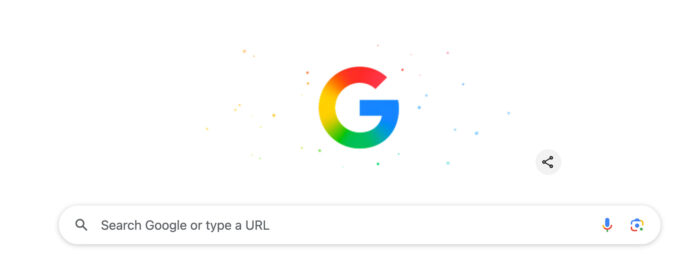Get ready, Android users! Google is rolling out a significant and exciting change to the Chrome browser address bar, signaling a deeper integration of artificial intelligence into everyday web Browse. In the Canary version of Chrome for Android, the familiar “Search Google or type URL” prompt is being replaced with a new, intriguing message: “Search AI Mode or type URL.” This subtle yet profound shift means that users can now directly tap into Google’s powerful AI capabilities right from their browser’s central hub, ushering in a new era of intelligent web interaction.
The Dawn of “AI Mode” Searching
This new prompt isn’t just a cosmetic change; it represents a fundamental shift in how users might interact with the internet. According to a report by Windows Report, this update enables users to directly enter queries into the address bar that will be answered by Google’s AI. This implies a direct pipeline to Google’s generative AI models, offering summarized answers, creative suggestions, or more nuanced information retrieval, rather than just a list of search results. Imagine asking a complex question and getting a concise, AI-generated answer directly within your browser, saving you time and clicks.
For this AI Mode to function, users will need to be signed in to their Google account, and the feature must be available in their specific region. This suggests that Google is carefully rolling out this functionality, likely in phases, to ensure optimal performance and user experience. It also means that the AI-powered search is likely integrated with a user’s personalized Google ecosystem, potentially leveraging their search history or preferences for more tailored responses.
Opting In and the Search Labs Program
If the “AI Mode” isn’t immediately enabled for a user, they may be prompted to opt into the Search Labs program. This is Google’s testing ground for innovative new features, where they gather user feedback and refine functionalities before a broader public release. Being part of Search Labs offers an early peek into Google’s future vision for search and Browse, inviting adventurous users to shape the development of these cutting-edge tools. It shows Google’s commitment to iterative development and user-centric design, allowing them to fine-tune the AI before making it widely available.
This approach allows Google to gather valuable data on how users interact with AI-powered search, identify potential issues, and optimize the experience. It also fosters a sense of community among early adopters, who feel they are contributing to the evolution of Google’s products. For those who enjoy being on the forefront of technology, joining Search Labs will be a no-brainer, offering a chance to experiment with the future of search.
Implications for the Future of Search
The integration of “AI Mode” directly into the Chrome address bar is a monumental step, blurring the lines between traditional web search and generative AI. Here’s why this is a game-changer:
- Efficiency: For many queries, users might no longer need to navigate to a search results page. The AI could provide immediate, concise answers directly within the browser, significantly speeding up information retrieval. This is particularly useful for quick facts, definitions, or summaries.
- Contextual Understanding: AI models are designed to understand complex natural language queries, meaning users can ask questions conversationally rather than relying on specific keywords. This makes search feel more intuitive and human-like.
- Personalization: With users signed in, the AI could potentially leverage personal preferences, past searches, and location data to provide more relevant and tailored responses, making the search experience incredibly bespoke.
- Content Creation and Summarization: Beyond direct answers, “AI Mode” could offer functionalities like summarizing long articles, generating ideas, or even assisting with writing tasks, all from within the address bar. This moves the browser beyond just information consumption to active content generation.
- Competition in the AI Search Space: This move by Google is a direct response to the increasing competition in the AI search landscape, particularly with Microsoft’s integration of AI into Bing and Edge. By making AI easily accessible within Chrome, Google aims to solidify its position as the leader in search innovation.
This change also suggests Google’s confidence in its AI capabilities, particularly its large language models (LLMs) like Gemini. By placing AI directly in the address bar, Google is making a bold statement about the maturity and reliability of its AI technology, positioning it as a primary mode of interaction.
The AI-Powered Browser: A New Paradigm
This isn’t just about search; it’s about transforming the browser itself into an intelligent assistant. The address bar, traditionally a gateway to websites or standard search results, is evolving into a powerful AI-driven portal. This could redefine how people navigate the internet, consume information, and even interact with digital content.
As AI capabilities continue to advance, we can expect even more sophisticated integrations. Imagine the AI in your address bar not only answering questions but also proactively suggesting relevant information as you browse, summarizing content on a webpage you’re visiting, or even helping you fill out forms. The possibilities are vast, and Google’s move with “AI Mode” is a clear indication of the direction the company is heading.
For Android users, this update brings a powerful new tool directly to their fingertips, potentially streamlining their online activities and making information more accessible than ever before. While it’s currently in the Canary version, its eventual rollout to the stable Chrome build will mark a significant milestone in the evolution of web Browse, cementing AI’s role at the very core of our digital interactions. The future of search is here, and it’s intelligent, conversational, and integrated right into your browser.


